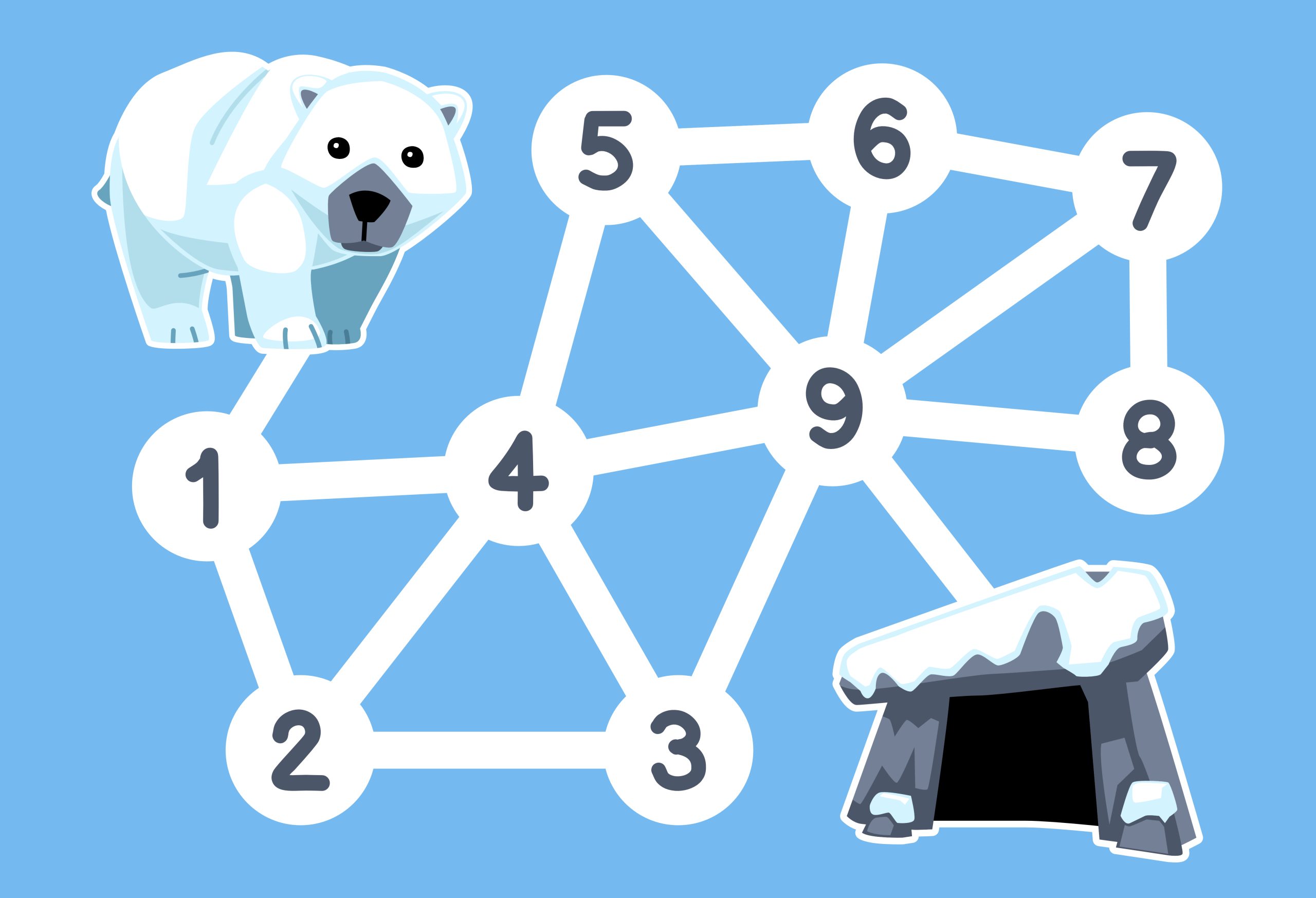Are you ready to unlock the secrets of your imagination? Dive into the world of ‘Simple Riddles for Kids: What Am I’ and embark on a brain-teasing adventure like no other. These riddles are like colorful puzzle pieces that will challenge your mind and make you think outside the box. With each riddle, you’ll unravel the hidden clues and discover the answer, feeling a sense of accomplishment with every solved mystery. Get ready to have fun, exercise your brain, and boost your confidence as you tackle these simple riddles. So, prepare to step into the realm of endless possibilities, where the answer to each riddle awaits your clever thinking. Let the riddle-solving journey begin!
Pet Riddles
Let’s explore some pet riddles that will challenge your critical thinking skills and test your knowledge of our furry friends. Pets bring so much joy and companionship to our lives, and they come in all shapes and sizes. Dogs and cats are the most popular pets, and they each have their own unique qualities. Dogs are loyal and protective, while cats are independent and mysterious. Having a pet has many benefits for kids. It teaches them responsibility, empathy, and patience. It also provides them with a constant companion and helps them develop social skills. Some people even have unusual pets like exotic animals. While it may be exciting to have a pet snake or a pet bird, it’s important to consider the special care and attention they require. Owning a pet is a big responsibility, and it’s important to teach children how to properly care for their furry friends. They should learn how to feed them, groom them, and provide them with a safe and loving environment. By taking care of a pet, children learn about responsibility and the importance of nurturing and caring for another living being. So, whether you have a dog, a cat, or an exotic pet, make sure to give them the love and care they deserve.
Brain Teasers
Brain teasers challenge your critical thinking skills and provide a fun way to exercise your brain. They offer numerous benefits for children’s cognitive development. By solving brain teasers, kids can enhance their problem-solving skills, develop their creativity and imagination, and improve their memory and cognitive abilities. Brain teasers also help children strengthen their critical thinking abilities, as they require logical reasoning and the ability to think outside the box.
Using riddles as a tool to enhance problem-solving skills in kids is a great way to engage their minds and encourage them to think critically. Riddles provide a fun and interactive way for children to apply their knowledge and reasoning abilities to solve puzzles. They require kids to analyze and interpret information, make connections, and come up with creative solutions.
The role of imagination and creativity in solving brain teasers is crucial. Kids need to think creatively and use their imagination to find unique and unexpected solutions to the riddles. This not only enhances their problem-solving skills but also fosters their imaginative thinking abilities.
Solving brain teasers can also improve children’s memory and cognitive abilities. They have to remember the information given in the riddles, analyze it, and apply their knowledge to solve the puzzles. This helps in strengthening their memory and cognitive processes.
By exploring the connection between critical thinking and solving riddles for kids, we can see how brain teasers provide an excellent opportunity for children to develop their critical thinking skills. They have to think logically, reason through the clues, and analyze the information given to arrive at the correct answer. This process promotes logical thinking and helps children become better problem solvers.
Funny Riddles
Funny riddles are a great way to engage your child’s sense of humor and challenge their problem-solving skills. They not only bring laughter and joy but also provide valuable learning opportunities. Here are three reasons why funny riddles are beneficial for kids:
- Riddles and laughter: The importance of humor in kids’ learning. Funny riddles create a light-hearted and enjoyable learning environment. Laughter releases endorphins, which improve mood and enhance learning. It also promotes a positive attitude towards problem-solving.
- Unlocking creativity: How riddles can inspire imaginative thinking in children. Funny riddles often contain unexpected twists and turns, encouraging children to think outside the box. They stimulate creativity by challenging kids to come up with unique and imaginative solutions.
- Riddles and problem-solving: Developing critical thinking skills in young minds. Funny riddles require children to analyze information, make connections, and think critically. They help develop problem-solving skills by teaching kids to approach challenges from different angles and consider multiple possibilities.
School Riddles
Explore the exciting world of School Riddles and challenge your problem-solving skills. Incorporating riddles in lesson plans can be a fun and interactive way to engage students in the classroom. These creative classroom activities can improve critical thinking skills while providing educational entertainment. Solving riddles in the classroom allows students to think outside the box, analyze information, and come up with logical solutions.
Educational games for school that involve riddles can be a valuable tool for teachers. Riddles can be used to introduce new concepts, reinforce learning, and assess understanding. They encourage students to think critically, make connections, and apply their knowledge in a creative way.
Incorporating riddles in lesson plans can also enhance students’ problem-solving abilities. By presenting them with challenging riddles, teachers can promote analytical thinking, develop cognitive skills, and foster a love for learning. Riddles can be used across various subjects, from math and science to language arts and social studies.
Animal Riddles
Test your knowledge and challenge your problem-solving skills with these engaging animal riddles. Get ready to guess some of your favorite animal riddles from different habitats! Here are some animal riddles for the jungle, farm, ocean, and forest:
- Animal riddles for the jungle:
- I swing from tree to tree with my long arms. Who am I? (Answer: A monkey)
- I am the king of the jungle and I roar loud. What am I? (Answer: A lion)
- I have black and white stripes and I love to run. What am I? (Answer: A zebra)
- Animal riddles for the farm:
- I give milk and say “moo”. Who am I? (Answer: A cow)
- I have feathers and lay eggs. What am I? (Answer: A chicken)
- I have a curly tail and say “oink”. What am I? (Answer: A pig)
- Animal riddles for the ocean:
- I have a fin on my back and sharp teeth. Who am I? (Answer: A shark)
- I have eight arms and squirt ink. What am I? (Answer: An octopus)
- I am a beautiful fish with bright colors. Who am I? (Answer: A clownfish)
- Animal riddles for the forest:
- I have antlers and live in the woods. Who am I? (Answer: A deer)
- I am small, furry, and love to climb trees. What am I? (Answer: A squirrel)
- I have big ears and hop around. Who am I? (Answer: A rabbit)
Now it’s your turn to solve these fun animal riddles! Can you guess all the answers?
Hard Riddles
Now it’s time to challenge yourself with some brain-teasing hard riddles that will put your problem-solving skills to the test. Solving riddles is not only fun but also a great way to develop critical thinking and problem-solving abilities. It engages your mind, stimulates creativity, and enhances your ability to think outside the box.
Here are some challenging riddles for you to solve:
| Riddle | Answer |
|---|---|
| I am taken from a mine, and shut in a wooden case, from which I am never released, and yet I am used by almost every person. What am I? | Pencil |
| The more you take of me, the more you leave behind. What am I? | Footsteps |
| I speak without a mouth and hear without ears. I have no body, but I come alive with wind. What am I? | Echo |
| What has keys but can’t open locks? | Piano |
| I am an odd number. Take away a letter and I become even. What number am I? | Seven |
These riddles not only require you to think critically but also encourage you to think creatively and use your deductive reasoning skills. The benefits of humor in riddles make the experience even more enjoyable. So, let’s get started and have fun while developing your problem-solving skills!
Funny Riddles for Young Kids
Continuing the journey of riddle-solving fun, let’s dive into the world of ‘Funny Riddles for Young Kids’. These riddles are not only entertaining but also have educational benefits for children. Here are three reasons why funny riddles are a great tool for young kids:
- Creative thinking: Funny riddles encourage children to think outside the box. As they try to solve the riddles, they need to come up with unique and imaginative answers. This helps develop their creative thinking skills and fosters their ability to think in unconventional ways.
- Developing listening skills: Solving riddles requires careful listening and understanding of the clues given. By engaging in riddle-solving activities, children can enhance their listening skills and train their minds to pay attention to details.
- The power of imagination: Funny riddles stimulate children’s imagination and creativity. As they try to solve the riddles, they are encouraged to imagine different scenarios and think creatively to find the answers. This helps expand their imagination and allows them to explore new possibilities.
By incorporating funny riddles into their daily activities, parents and educators can build vocabulary in a fun and engaging way. Children learn new words and their meanings as they try to decipher the riddles. This not only expands their vocabulary but also improves their language skills.
Solving riddles can be a fun and enjoyable activity for young kids. By presenting riddles in a playful and interactive manner, children are more likely to view it as a game rather than a task. This makes problem-solving enjoyable and helps children develop a positive attitude towards learning.
Food Riddles
Get ready to challenge your taste buds with these fun and engaging food riddles! Whether you’re a foodie or just love a good brain teaser, these riddles will have you thinking outside the box.
Favorite desserts: Sweet riddles
- What dessert can you never eat for breakfast? Lunch and dinner.
- What kind of cheese is made backwards? Edam.
Food for thought: Mind bending riddles
- What has a head but no eyes, nose, or mouth? Lettuce.
- What is red and small with a heart of stone? A cherry.
Let’s play with our food: Food themed riddles
- Throw away the outside, cook the inside, eat the outside, and throw away the inside. What am I? Corn.
- Ripe, green, red when eaten, and black when spit out. What am I? Watermelon.
Guess what’s on the menu: Food riddles for hungry minds
- What has keys but can’t open locks? A piano.
- What goes up but never comes back down? Age.
Feeding the brain: Riddles about food
- What kind of lion never roars? A dandelion.
- Thanksgiving and Christmas are incomplete without this food. Turkey.
These food riddles are a great way to challenge your thinking while having fun. So, get ready to tickle your brain and satisfy your hunger for riddles!
Clever Riddles
Let’s dive into some clever riddles that will challenge your thinking and keep you on your toes! Here are three clever riddles for you to solve:
- Creative Riddle Activities: Engaging Kids’ Imagination: What has keys but can’t open locks? This riddle engages children’s minds and teaches them the concept of metaphor. It encourages thinking outside the box and provides a fun mental challenge.
- Riddles for Family Fun: Bonding Through Brain Teasers: I speak without a mouth and hear without ears. I have no body, but I come alive with wind. What am I? This riddle promotes imaginative thinking and enhances listening skills. It encourages deductive reasoning and boosts problem-solving abilities.
- Exploring Lateral Thinking: Unlocking Riddles’ Hidden Meanings: What has a heart that doesn’t beat? This riddle enhances logical reasoning and develops deductive thinking skills. It encourages critical thinking and teaches the concept of metaphor. It stimulates cognitive abilities.
Riddles are not just a fun way to pass the time, but they also have numerous benefits. Solving riddles enhances learning and understanding of the world around us. It develops critical thinking and problem-solving skills, stimulates creativity and imagination, improves memory and cognitive abilities, and boosts self-confidence and self-esteem. So, challenge yourself with these clever riddles and unlock the hidden meanings within them. Happy riddling!



